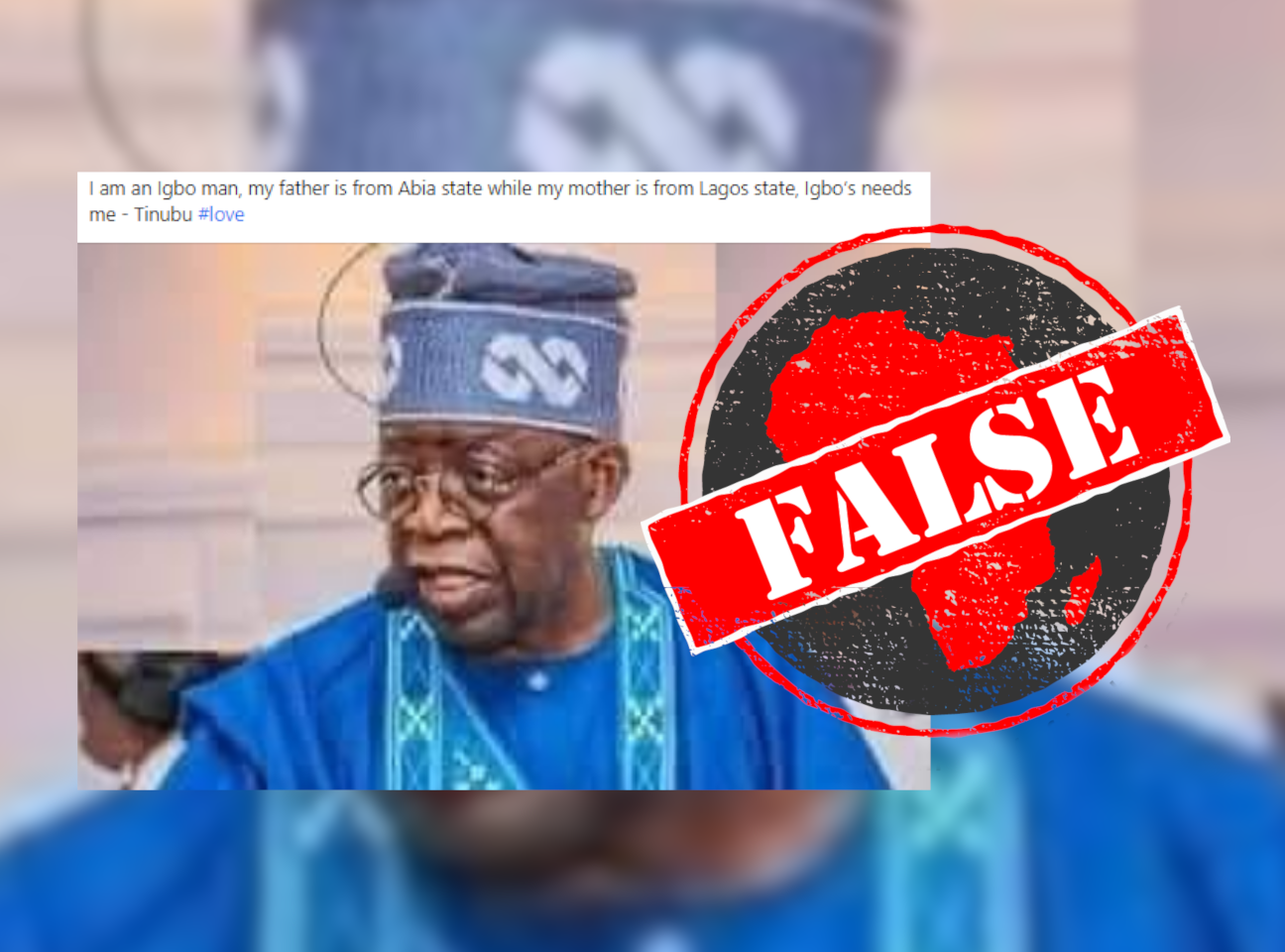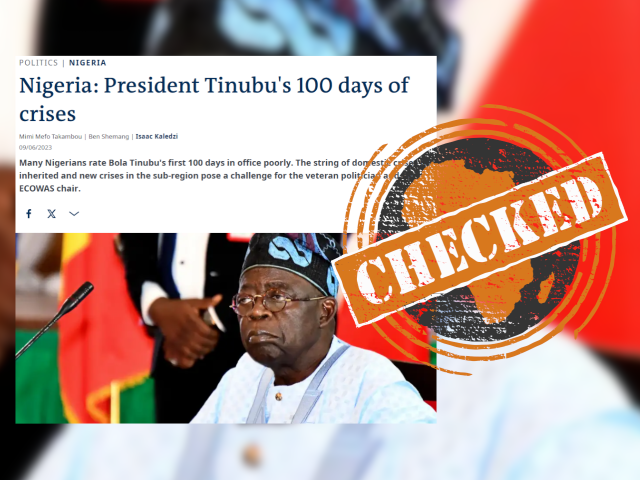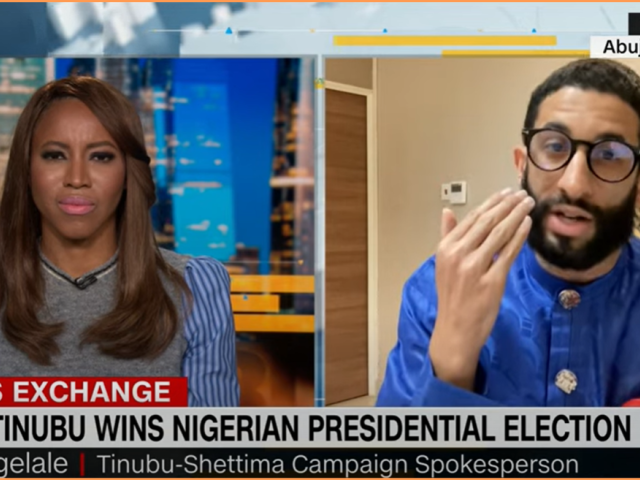IN SHORT: As the race to the 2023 Nigerian elections speeds up, it’s been reported on social media that ruling party presidential candidate Bola Tinubu – who is well-known to be Yoruba – has said he is “an Igbo man”. But this quote has been made up.
“I am an Igbo man, my father is from Abia state while my mother is from Lagos state, Igbo’s needs me – Tinubu,” reads a Facebook post published on 5 September 2022.
Bola Tinubu is a Nigerian politician and the presidential candidate for the ruling All Progressives Congress. Nigeria is set to hold general elections in February 2023.
Abia state is in southeastern Nigeria and was created in 1991. Abia people are of the Igbo ethnic group and, traditionally, their home language is Igbo. Lagos state is in southwestern Nigeria and here Yorubas are the main ethnic group.
The claim was also repeated in other Facebook posts.
But did Tinubu make such a comment? We checked.

A brief biography
Religion and ethnicity are key factors at election-time in Nigeria and candidates on the campaign trail often try to appeal to voters across different religions and ethnicities. (Read our factsheet on Nigeria’s 2023 elections.)
Tinubu was born in Lagos on 29 March 1952. Not much is known about his father, but his mother, Abibatu Mogaji, was the “Iyaloja of Lagos state”. (Note: Iyaloja means the leader of the market women or “mother of the market”.)
Tinubu served as the 12th governor of Lagos state, between 1999 and 2007. He also represented the Lagos West senatorial district from 1992.
No evidence Tinubu said he was Igbo
The original post doesn’t give details of where or when Tinubu is meant to have made the comment.
There have been no reports in the mainstream media of Tinubu saying anything related to being an “Igbo man”, rather than Yoruba.
If Tinubu had said this it would have been reported by credible news organisations. As it wasn’t, the quote is most likely to have been fabricated.
Republish our content for free
For publishers: what to do if your post is rated false
A fact-checker has rated your Facebook or Instagram post as “false”, “altered”, “partly false” or “missing context”. This could have serious consequences. What do you do?
Click on our guide for the steps you should follow.
Publishers guideAfrica Check teams up with Facebook
Africa Check is a partner in Meta's third-party fact-checking programme to help stop the spread of false information on social media.
The content we rate as “false” will be downgraded on Facebook and Instagram. This means fewer people will see it.
You can also help identify false information on Facebook. This guide explains how.




Add new comment